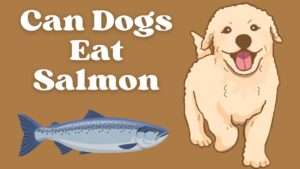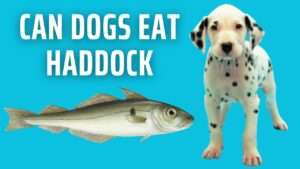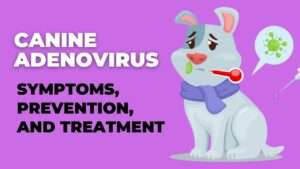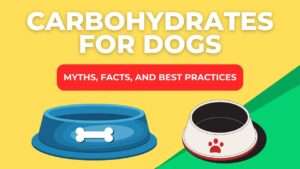Dogs, our loyal companions, often share our meals and snacks. But when it comes to seafood, particularly octopus, questions arise about its safety for our furry friends. Can dogs indulge in this underwater delicacy? In this comprehensive guide, we’ll explore the ins and outs of feeding octopus to dogs, covering everything from nutritional value to potential risks.
Contents Overview
What is Octopus
Octopus is a fascinating sea creature known for its eight arms, suction cups, and ability to change color and texture to blend with its surroundings. Belonging to the cephalopod family, octopuses are highly intelligent and agile predators, using their arms to catch prey and navigate their underwater environment. With a unique anatomy and behavior, octopuses captivate scientists and enthusiasts alike, showcasing the diversity and wonder of marine life.
Nutritional Value of Octopus
Octopus packs a nutritional punch, offering a rich source of protein, essential vitamins, and minerals. It’s particularly high in protein, which supports muscle development and overall health in dogs. Additionally, octopus contains omega-3 fatty acids for heart and brain health, along with vitamins B12, B6, and C, contributing to energy metabolism and immune function. Minerals like iron, zinc, and selenium found in octopus play vital roles in various bodily functions, making it a nutritious addition to a balanced canine diet.
Can Dogs Eat Octopus Safely?
Dogs can safely eat octopus, but it’s essential to take precautions. Cooked octopus is generally safe for dogs, providing protein and nutrients beneficial to their health. However, it’s crucial to remove any potential choking hazards, such as suction cups, and ensure thorough cooking to eliminate the risk of parasites and bacteria. Feeding octopus in moderation and monitoring for any adverse reactions, such as allergies or digestive issues, is important to keep dogs safe and healthy.
Potential Benefits of Octopus to Dogs
As unconventional as it may sound, incorporating octopus into your dog’s meals could offer surprising benefits. While it may seem unusual at first glance, octopus can provide a range of nutritional advantages for dogs. Let’s dive deeper into the potential benefits of feeding octopus to your canine companion.
Digestibility:
- Low Fat Content: Octopus is naturally low in fat, making it a suitable protein source for dogs with pancreatitis or those requiring a low-fat diet.
- Easily Digestible: Its tender texture and lack of connective tissue make octopus easy for dogs to digest, reducing the risk of gastrointestinal upset.
Dental Health:
- Chewing Benefits: Chewing on octopus can help to clean your dog’s teeth and gums, reducing plaque and tartar buildup and promoting better dental hygiene.
Weight Management:
- Lean Protein Source: With its low-fat content and high protein levels, octopus can be a valuable addition to weight management diets for dogs needing to shed excess pounds.
Allergen Alternative:
- Hypoallergenic Option: For dogs with food sensitivities or allergies to more common proteins like chicken or beef, octopus can serve as a hypoallergenic alternative.
Serving Suggestions:
- Preparation: When serving octopus to your dog, ensure it is cooked thoroughly to eliminate any potential pathogens and to improve digestibility.
- Portion Control: Moderation is key. Introduce octopus gradually into your dog’s diet to gauge tolerance and prevent digestive issues.
- Avoid Seasonings: Steer clear of adding salt, spices, or other seasonings when preparing octopus for your dog, as these can be harmful to their health.
Potential Risks and Precautions of Feeding Octopus to Dogs
While the idea of treating your furry friend to some oceanic delicacies like octopus might sound enticing, it’s crucial to consider the potential risks and precautions involved. Understanding the possible downsides can help you make informed decisions about incorporating octopus into your dog’s diet while prioritizing their health and safety.
Choking Hazard:
- Tentacle Danger: The tentacles of octopus can present a choking hazard, especially for smaller breeds or dogs prone to swallowing food quickly. Always supervise your dog closely when they’re eating octopus to prevent any accidents.
Digestive Issues:
- Sensitivity Concerns: Some dogs may have difficulty digesting seafood or novel proteins like octopus, leading to gastrointestinal upset such as vomiting, diarrhea, or discomfort. Introduce octopus gradually into your dog’s diet to assess their tolerance and watch for any adverse reactions.
Mercury Contamination:
- Heavy Metal Risk: Like many marine creatures, octopus may contain traces of mercury, which can accumulate in your dog’s body over time and pose health risks, particularly in large or frequent servings. Limit the frequency of octopus consumption to reduce the potential exposure to mercury.
Allergen Awareness:
- Allergic Reactions: Although relatively rare, some dogs may develop allergies to seafood proteins like octopus. Watch for signs of allergic reactions, such as itching, skin irritation, or digestive disturbances, and discontinue feeding octopus if any adverse symptoms occur.
Preparation Precautions:
- Thorough Cooking: Ensure octopus is cooked thoroughly before serving it to your dog to eliminate any potential pathogens and improve its digestibility. Raw or undercooked octopus can harbor harmful bacteria that may cause foodborne illnesses in dogs.
- Avoid Seasonings: Refrain from adding salt, spices, or other seasonings to octopus prepared for your dog, as these can be harmful to their health. Stick to plain, unseasoned octopus to minimize the risk of digestive upset or sodium-related issues.
Consultation with Veterinarian:
- Individualized Advice: Before introducing octopus or any new food into your dog’s diet, consult with your veterinarian, especially if your dog has pre-existing health conditions or dietary sensitivities. Your vet can offer personalized guidance based on your dog’s specific needs and circumstances.
Safe Ways to Feed Octopus to Dogs
Let’s explore some of the safest methods for feeding octopus to dogs.
Cooking Methods:
- Boiling: Boiling octopus until tender and fully cooked is one of the safest methods for preparing this seafood for your dog. Ensure that it is thoroughly cooked to eliminate any potential pathogens and make it easier for your dog to digest.
- Steaming: Steaming octopus is another gentle cooking method that preserves its natural flavors while ensuring it is safe for your dog to consume. Steaming also helps retain more nutrients compared to boiling.
Preparation Techniques:
- Cutting into Bite-Sized Pieces: After cooking, cut the octopus into small, manageable pieces that are suitable for your dog’s size and chewing abilities. This helps reduce the risk of choking and makes it easier for your dog to eat.
- Removing Tentacles: Remove the octopus’s tentacles before serving, as they can pose a choking hazard, especially for smaller dogs. Focus on providing the body portion, which is typically easier for dogs to chew and digest.
Serving Suggestions:
- Mixing with Dog Food: Mix cooked and chopped octopus with your dog’s regular food to add variety and enhance its nutritional value. Gradually introduce octopus into your dog’s diet to gauge their tolerance and ensure they enjoy it.
- As a Standalone Treat: Offer small pieces of cooked octopus as a standalone treat or reward during training sessions. This allows your dog to enjoy the unique taste and texture of octopus while receiving a nutritious snack.
Portion Control:
- Moderation is Key: While octopus can be a healthy addition to your dog’s diet, it’s essential to practice moderation and avoid overfeeding. Limit the amount of octopus offered to your dog to prevent digestive issues and maintain a balanced diet.
Quality Assurance:
- Source Quality Octopus: Choose fresh or frozen octopus from reputable sources to ensure its quality and safety for consumption. Avoid octopus that has been treated with additives or preservatives, as these may not be suitable for dogs.
Observation and Monitoring:
- Supervise Eating: Always supervise your dog while they’re eating octopus to ensure they chew it thoroughly and to prevent any choking incidents. Keep an eye out for any signs of discomfort or adverse reactions, and adjust their diet accordingly.
When to Avoid Octopus to Dog
- Allergic Reactions: If your dog has a known allergy to seafood or shellfish, it’s best to avoid feeding them octopus to prevent allergic reactions and potential health complications.
- Digestive Sensitivity: Dogs with sensitive stomachs or digestive issues may struggle to tolerate octopus, leading to gastrointestinal upset such as vomiting or diarrhea. Avoid feeding octopus to dogs with known digestive sensitivities.
- Choking Hazard: Small dogs or breeds with brachycephalic (short-nosed) features may be at higher risk of choking on octopus tentacles. Avoid offering octopus to dogs prone to swallowing food whole or those with a history of choking incidents.
- Mercury Concerns: If you’re concerned about mercury levels in seafood, particularly for pregnant or nursing dogs, it may be wise to limit or avoid feeding octopus to minimize potential exposure to this heavy metal.
- Undercooked Octopus: Raw or undercooked octopus can harbor harmful bacteria and parasites that may cause foodborne illnesses in dogs. Avoid offering raw octopus to your canine companion and ensure it is thoroughly cooked before serving.
- Additives and Preservatives: Octopus treated with additives or preservatives may not be suitable for dogs, as these substances can be harmful to their health. Choose fresh or frozen octopus from reputable sources to ensure its safety for consumption.
- Veterinary Advice: If you’re uncertain about whether octopus is suitable for your dog’s diet, or if your dog has underlying health conditions, it’s best to seek guidance from your veterinarian before introducing octopus into their meals.
Safe and Suitable Alternatives of Octopus for Dogs
If you’re looking for safe and suitable alternatives to octopus for your dog, consider options such as cooked salmon or tuna, both of which provide similar nutritional benefits, including high-quality protein and omega-3 fatty acids. Other seafood options like shrimp or white fish can also be excellent choices, as long as they’re cooked thoroughly and served plain without any added seasonings or sauces. Additionally, lean meats like chicken or turkey offer protein-rich alternatives that are generally well-tolerated by dogs. When introducing new foods into your dog’s diet, always start with small portions to monitor their response and consult with your veterinarian if you have any concerns about suitability or allergies.
Bottom Line
In conclusion, while octopus offers nutritional value, it’s important to approach feeding it to dogs with caution. Cooked octopus can be a safe and healthy occasional treat for most dogs, but it should be prepared properly and served in moderation. Always monitor your dog for any adverse reactions and consult your veterinarian if you have concerns about their diet. With careful consideration, you can enjoy sharing seafood with your furry friend while keeping them happy and healthy.




































+ There are no comments
Add yours